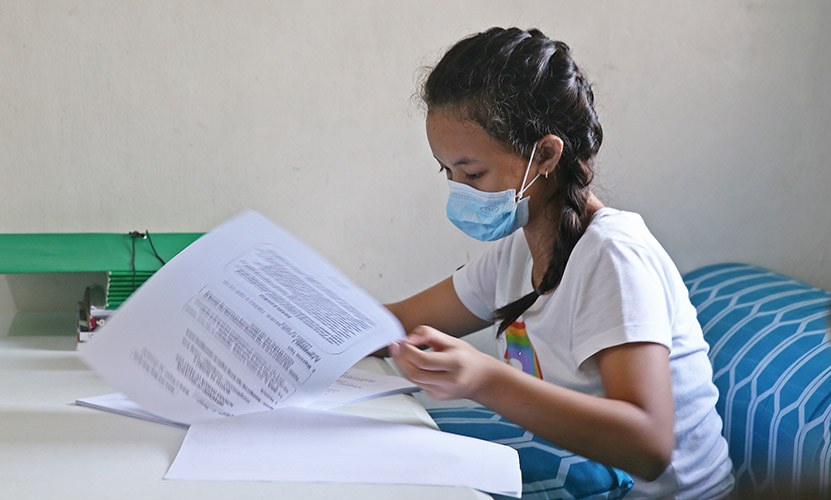Though the gradual resumption of face-to-face classes is a crucial first step to restore normalcy in the basic education sector, Senator Win Gatchalian pressed the need to implement a nationwide learning remedial program to address learning losses because of prolonged school closures.
- The World Bank’s simulation analysis of learning losses estimates that Learning-Adjusted Years of Schooling (LAYS) will go down from 7.5 years to 5.7 to 6.1 years, an equivalent of 1.4 to 1.7 years;
- The National Economic and Development Authority (NEDA) also estimates that for one school year without face-to-face classes, the economy is set to lose P11 trillion in the next 40 years;
- To mitigate pandemic-related learning losses, the ARAL Program shall cover the most essential learning competencies under Language and Mathematics for Grades 1 to 10, and Science for Grades 3 to 10.

Gatchalian pitched anew his proposed learning recovery program called the Academic Recovery and Accessible Learning (ARAL), which is outlined in Senate Bill No. 2355. The proposed ARAL program, which will include well-systematized tutorial sessions, will target those who did not enroll last school year, those who are lagging academically, and those who are at and marginally above the minimum level of mastery required in Language, Mathematics, and Science.
“Habang unti-unti nating binubuksan ang mga paaralan, kailangang samahan natin ito ng tutorial sessions para sa mga mag-aaral. Dapat nating tiyaking makakahabol sila sa kanilang pag-aaral at maiwasan ang pag-urong ng kanilang kaalaman,” said Gatchalian, Chairman of the Senate Committee on Basic Education, Arts and Culture.
The World Bank’s simulation analysis of learning losses estimates that Learning-Adjusted Years of Schooling (LAYS) will go down from 7.5 years to 5.7 to 6.1 years, an equivalent of 1.4 to 1.7 years. This means that for 12 years of basic education, the quality of learning will only be equivalent to an effective 5.7 to 6.1 years of schooling.
The National Economic and Development Authority (NEDA) also estimates that for one school year without face-to-face classes, the economy is set to lose P11 trillion in the next 40 years.
To mitigate pandemic-related learning losses, the ARAL Program shall cover the most essential learning competencies under Language and Mathematics for Grades 1 to 10, and Science for Grades 3 to 10. The program will also prioritize Reading, which is included in the most essential learning competencies under Language. For Kindergarten learners, literacy and numeracy competencies will be strengthened.
Tutorial sessions under the ARAL Program shall be undertaken through face-to-face, online, or blended learning to ensure their accessibility to all learners.
The program’s tutors will be teachers, para-teachers, and student-volunteers from the tertiary level who have to pass a mock tutoring session by the Department of Education (DepEd). Services for two semesters by student-volunteers shall be deemed as completion of the Literacy Training Service under the National Service Training Program (NSTP).


